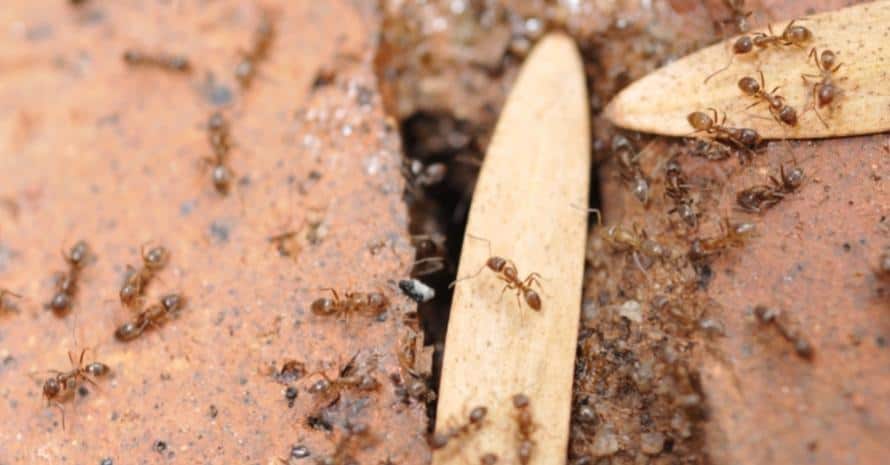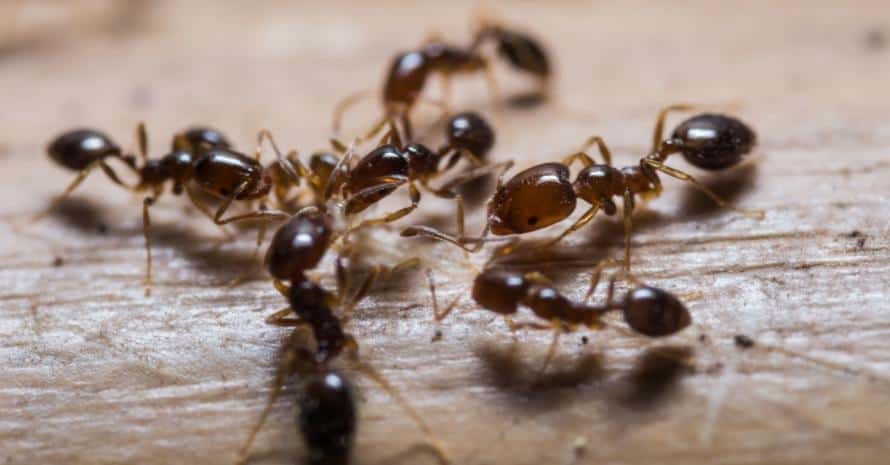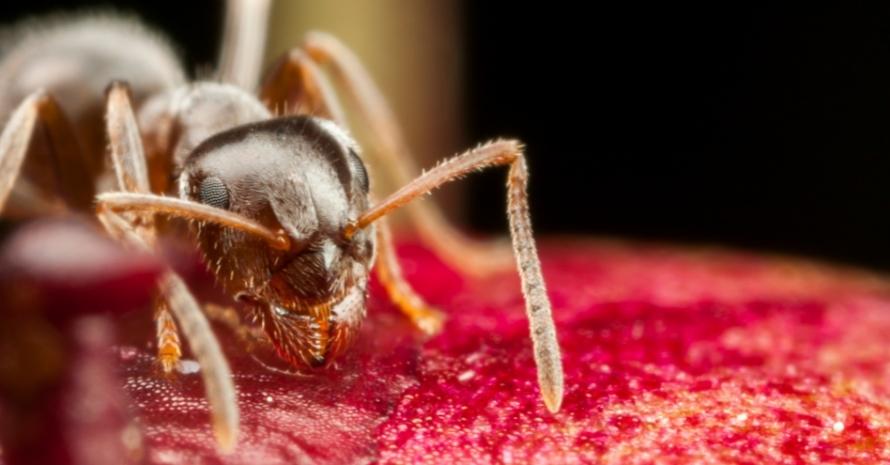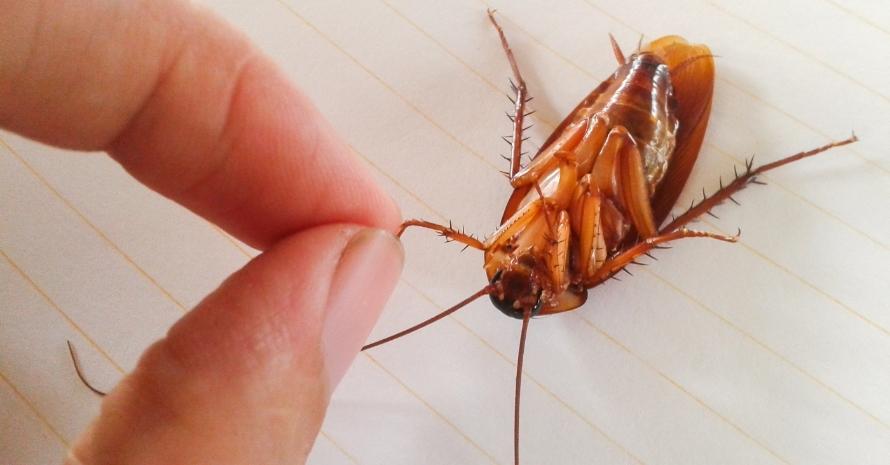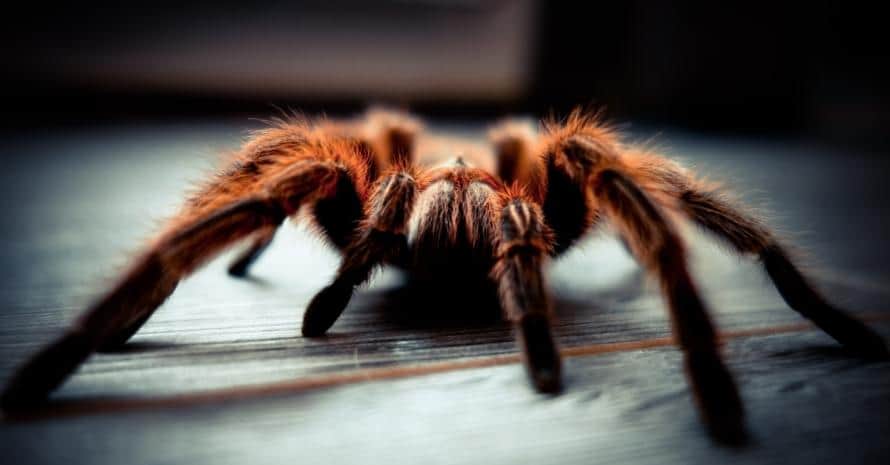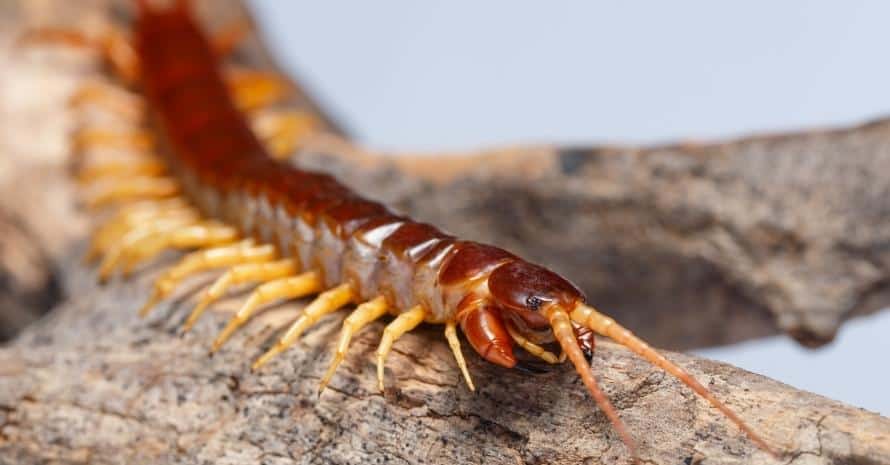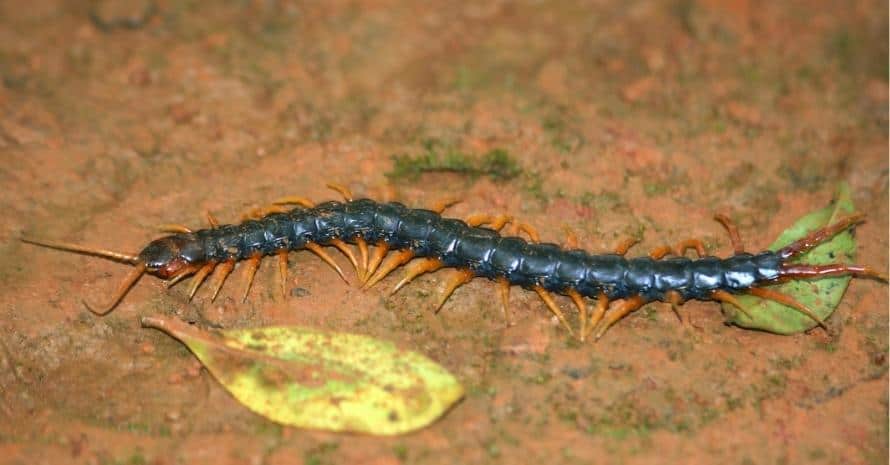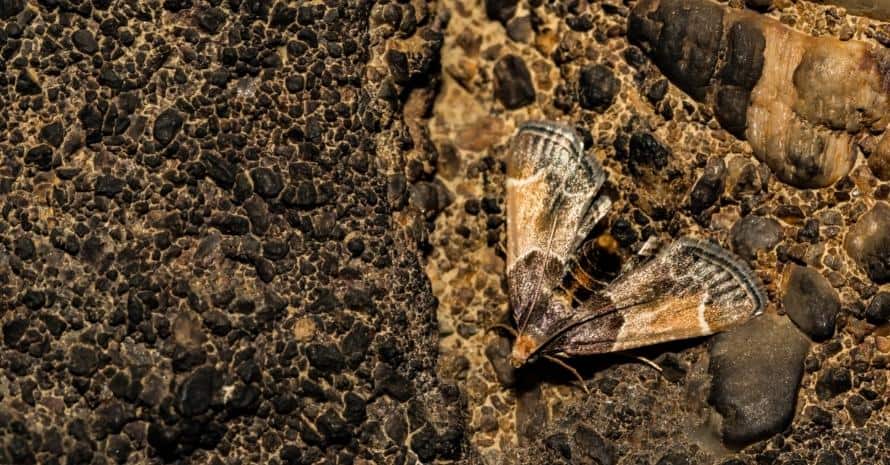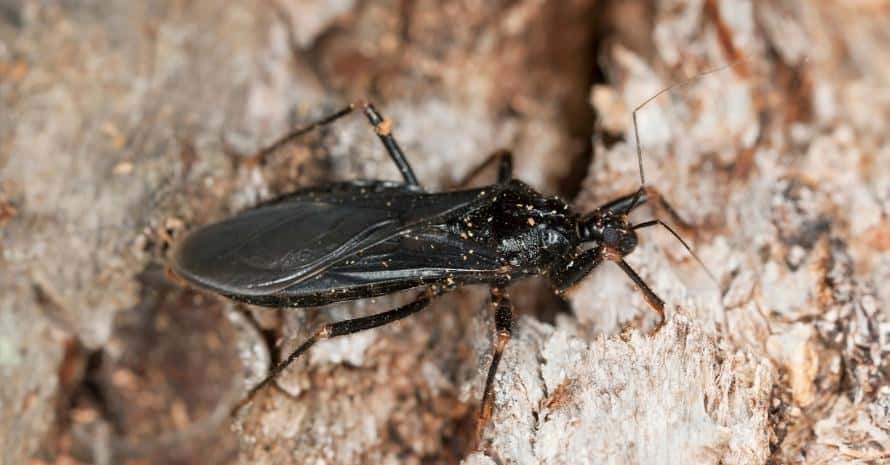Bed bugs are tiny biting insects that can turn your life into a nightmare. They are hard to get rid of in the first place as they are very tenacious and can exist without food for about a year.
If you suffer from them and want to know all the ways in which you can get rid of them, you can ask for help from bed bugs predators. In this article, I will tell you everything I know about such insects and animals.
Although they can be effective against blood-sucking parasites, they are unreliable allies.
Guide on Natural Enemies of Bed Bugs
A complete list of bed bug enemies can include a variety of creatures: from ants and moths to centipedes and lizards. Although you have many assistants in pest control, many of the bugs that eat bed bugs are unwanted neighbors themselves.
You may know what eats bed bugs, but it’s worth considering whether it’s good to have in your home.
Insects that eat bed bugs
What insects eat bed bugs? In fact, the list of creatures that can help you in the fight against these pests is quite extensive. Some are really effective at eating bed bugs; others may just eat them if they are available. In this section, I talked about all known enemies.
Argentine ants
Many species of ants can indeed quickly gobble up a colony of bed bugs. Argentine ants are no exception. However, I would not recommend running them in your home as you will be replacing one problem with another.
The fact is that several females can live in one anthill at once, which means that the process of reproduction in them proceeds many times faster.
Yes, other insects will definitely disappear. But along with it, you will notice the massive damage these poisonous ants cause to the environment, animals, and agriculture.
Red imported fire ants
It is another type of ant that kills pests and harms other inhabitants of your region. Red imported fire ants, along with argentine ants, are considered one of the most dangerous ants.
They are highly aggressive, hardy, and can survive even in extreme conditions. For instance, when a flood occurs, they create rafts. They have not only effective poison but also very powerful jaws.
Mammals, birds, and amphibians trapped by these ants die. Their bites can be not only painful but also fatal to sensitive people.
Pharaoh ants
It is the most common type of ant and is sure to be in every house. Although they are smaller than the previous two and much less aggressive, they are considered the most effective bed bug hunters.
It is possible that they already help you with pest control. However, leaving a pharaoh ants colony unattended and untreated is also not recommended. If they breed, they will become a severe problem, as they can carry diseases that are dangerous to humans.
As a summary for ants, I want to answer the most common question, “Do ants eat bed bugs?” Yes, they do. But it happens occasionally. In general, they are capable of causing even more damage than bugs, so it is not recommended to use them specifically for pest control.
American cockroaches
Omnivorous American cockroaches are considered enemies of bed bugs, as they are one of the fastest species and therefore able to catch other small and nimble pests.
Do cockroaches eat bed bugs? Yes, from time to time. Like many other predators, they simply eat what is closest to them. If it’s a bed bug, then they’ll eat it. Otherwise, cockroaches do more harm than good, as they spread dangerous diseases, ruin human food, and provoke allergic reactions.
Thanatus flavidus spiders
Thanatus flavidus spiders spread their webs near large concentrations of insects. Do spiders eat bed bugs? Yes, and there is a theory that they move further along the trail when they kill all the pests in the vicinity.
Spiderlings hatch from eggs around the same time as bed bugs. The location of a spider nest next to their hive guarantees that the young ones will have something to eat. Moreover, T. flavidus do not wait for victims on their webs but hunt them themselves.
House centipedes
Unlike many other listed insects, house centipedes are almost completely harmless to humans. On rare occasions, they bite but generally prefer to stay away from light and open spaces.
People are frightened by their creepy appearance, but killing them for that alone is not worth it. They do an excellent job of hunting various insects, including bed bugs.
However, it is worth remembering that they do not feed only on them and prefer to live in dark, damp rooms (where bed bugs do not live).
Scolopendras
These are other predators that eat almost any insect. Scolopendras are often confused with house centipedes due to their long bodies and many legs.
However, they tend to be much longer (up to 12 inches), covered in chitinous shells, have spines on their legs, and are venomous. If a scolopendra crawls over your skin, it will leave a chemical burn.
It is unlikely that you would want such a creature to help you battle against bed bugs. Besides, scolopendras kill house centipedes, which are harmless to humans.
Painted meal moths
Although in most cases, moths are completely indifferent to bed bugs, it is Pyralis pictalis (or painted meal moth) that helps people deal with them.
The larvae of this species have been known to seek out and eat bed bug eggs (provided there is no other more available food nearby). Adults do not show such interest in these pests, so they should also be destroyed on time.
Masked bed bug hunters
Masked bed bug hunters may look a little nicer than centipedes, but they’re still not the best roommates. They got their name for a reason, as they really are a threat to bed bugs.
The fact is that their nymphs hide in the dust, including under the bed, from where it is convenient to hunt small pests. And although they have proven effective in exterminating domestic insects, they still pose some danger to humans. They can carry dangerous diseases and bite painfully if they feel threatened.
Animals that eat bed bugs
What animals eat bed bugs? There are many insectivorous animals in nature; however, they mainly feed on larger creatures than bed bugs. Reptiles like small lizards and frogs can be helpful in pest control.
There is a version that geckos are good at this task. However, their effectiveness has not been proven since small lizards prefer to hunt on open surfaces and walls, and bed bugs are hidden in dark corners. Besides, they require special conditions for their maintenance.
Birds and small rodents are considered natural enemies of small insects. Do mice eat bed bugs? If they had free access, they would probably eat them.
However, they practically do not intersect in the natural environment, so it is impractical to use them intentionally to fight these particular pests. It should always be remembered that bed bugs are rarely the main food of any creature; they are one of the options.
Do common pets eat bed bugs?
Cats and dogs may hunt bed bugs, not to eat them but rather to play with them. It is difficult to imagine a situation where a pet would prefer a domestic pest to the much tastier and more nutritious food that an owner offers.
However, it is believed that dogs can detect clusters of insects, so they can be useful in determining bug infestation.
FAQ on Natural Enemies of Bed Bugs
In theory, bed bugs do have many enemies besides humans. In practice, all these creatures are the same pests you should get rid of. Read my answers to the most common questions to better understand the problem.
What eats bed bug eggs?
Insect eggs are very nutritious, so many animals and other insects feed on them. Considering that many of the creatures listed in my guide are omnivores, they also eat eggs. Pharaoh ants, painted meal moths, and cockroaches stand out among them.
Can cats smell bed bugs?
By nature, cats are not hunters of bed bugs. However, you can correct their behavior and teach them to identify infestations with some training. Unfortunately, no one can guarantee the success of such an activity.
What plant kills bed bugs?
There are over 600 species of carnivorous plants like sundews or Venus flytraps that eat pests. However, it will take a lot of them to destroy one colony.
There is a concept that bed bugs “stick” to scattered kidney bean plant leaves because they have a hairy surface (with trichomes). Geranium, lemongrass, lavender, and cinnamon repel these insects.
Stop Bed Bug Infestation With Effective Methods
The idea that bed bugs can be removed naturally is not bad. However, using other insects for it is at least illogical. You simply replace one issue with another.
The situation can become more complicated, and it will be even more tricky to remove new pests. Do not waste time and nerves in vain and use proven and more effective methods like insecticides. If the infestation is uncontrollable, call the professionals.
If you have experienced bed bug infestation, please tell me how you dealt with the problem. What methods did you use? What personal tips have you developed?
Also read:
- Best Bed Bug Bomb
- Best Bed Bug Steamer
- Best Bed Bug Powder
- How to Get Rid of Bedbugs in a Couch
- What Scent Keeps Bed Bugs Away
- Can Bed Bugs Live on Plastic
- Can Bed Bugs Live on Leather
- Does Borax Kill Bed Bugs
References
- Entrapment of bed bugs by leaf trichomes inspires microfabrication of biomimetic surfaces (Megan W. Szyndler, Kenneth F. Haynes, Michael F. Potter, Robert M. Corn and Catherine Loudon)
https://royalsocietypublishing.org/doi/10.1098/rsif.2013.0174 - Megarian Banded Centipede (Scolopendra cingulata) (Andre McMillion and Jaelen Yach of the University of Wisconsin)
bioweb.uwlax.edu/bio203/s2014/mcmillio_andr/nutrition.htm - Health risks of cockroaches? (The Trustees of Columbia University in the City of New York)
https://goaskalice.columbia.edu/answered-questions/health-risks-cockroaches - Fire Ant Facts (Mississippi State University)
extension.msstate.edu/content/fire-ant-facts
Contents
Why You Should Trust Pest Control Hacks?
We know that pests are nasty neighbors, and it can take months to eliminate them without the right approach. Our experts use their own experience to compile articles and guides that are introductory and informative. Our authors’ opinions are independent and based on the results of practical testing of pest control tools. We do not notify manufacturers of testing of their products and do not receive payment from them for posting their items. Also, our texts are never submitted to company representatives for proofreading before placement. On the site, you will find exclusively objective ratings and reviews.


